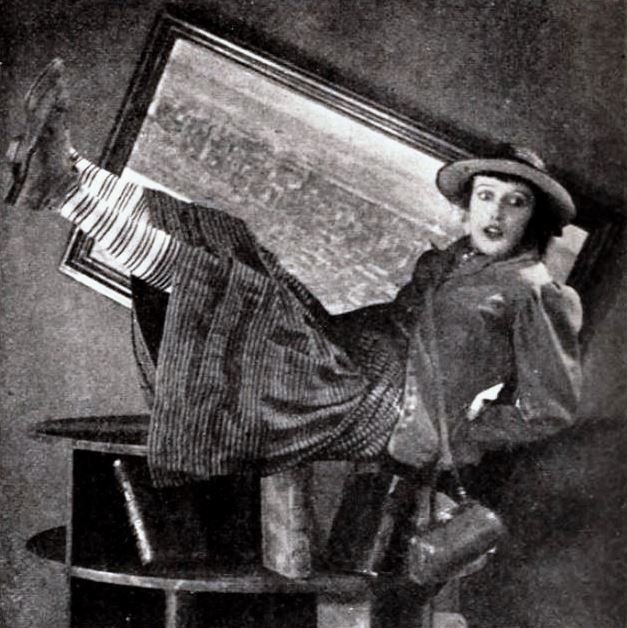19 August 2022
Lollapalooza (with various spellings) is a slang term referencing something great or wonderful or simply an outstanding example of something. The lolla- element appears to be from an earlier slang term, lalla, which also gave us lulu. The ‑palooza is simply a nonsense addition.
Lalla appears in print as early as 1881 in an article about theatrical slang in the 13 August 1881 Los Angeles Daily Herald:
He calls a beautiful woman a “lalla,” a “dandy,” or a “corker,” and an ugly one is a “chromo.”
The California paper gives credit to the Philadelphia Times for the article, but I cannot find that earlier appearance.
We see it, with a different spelling, in reference to baseball in the National Police Gazette of 25 September 1886:
Connor’s hit over the right field fence was a lahah.
And a number of secondary sources, including the Oxford English Dictionary in an old entry, record lulu a little more than a month later. This use is said to occur in the New Orleans Lantern of 10 November 1886:
Farrell’s two baser was a lu-lu.
The only copy of the Lantern I can locate is a microform copy at Tulane University, which I am unable to consult. I have grown suspicious of sources, even otherwise respectable ones, that I cannot verify. In this case, the citation appears in a 1950 article in American Speech, and I suspect that other secondary sources are using this article as their reference. This is a classic situation where errors tend to be propagated. In this case, however, even if this particular citation is in error, we know that lulu was in use by that same year because it appears in Geore Ade’s 1886 novel Artie in a description of a bad hangover:
“I’ve got a set o’ coppers on me this g.m. that’d heat a four-room flat and my mouth tastes like a Chinese family ’d just moved out of it.”
“Another poker party?” asked Miller.
“Guess again. Worse ’n any poker party. A bat—a real old bat. Pazoo-oo-oom! Ooh! Mebbe you think I ain’t got a lulu of a head on me this morning. I ought to be out at the Washin’tonian home with all the rest o’ them stills and hypos.”
“You do n’t [sic] mean to say that you were—loaded?” inquired Miller, leaning over his desk and lowering his voice so that young Mr. Hall should not hear.
“To the guards. Up to here,” and Artie, elevating his chin, drew a forefinger across his Adam’s apple.
And Ade’s novel gives us the first recorded use of a variant of lollapalooza, this time in reference to a beautiful woman:
“But the girls—wow!
“Beauties, eh?”
“Lollypaloozers!”
Also in the late nineteenth century, lollapalooza developed a specific sense in poker as a hand that is worthless according to the standard rules of poker but that is used to dupe a novice player into thinking they’ve been beaten. This sense appears in an article in the Idaho Daily Statesman of 25 October 1899. The article, which gives other examples of similar terms, is credited to the Washington Post, but again I cannot find that original:
A middle aged Maryland farmer, who picked the right one to the tune of nearly $800 at the Rockville fair races, got into Washington in the nihgt [sic] following the wind up of the fair, says the Washington Post. He was hunting for joyance and three cheerful workers gold [sic] hold of him and nudged him into a four-handed poker game. The farmer didn’t know much about the game, but he won steadily for the first hour. Then the cheerful workers went at him in a bunch and they took his winnings and his own bundle off him so fast that it made him sneeze. One of them got a “squeeze-jib,” which he explained as being a hand that couldn’t be shown, and raked down $135 of the Maryland man’s money. Another got a “lallapaloosa,” consisting of three clubs and a pair of spades, and took $85 of the farmer’s money. The Maryland man only had three queens. Another of the merry grafters caught four diamonds and the ace of clubs on top, which, being a “kiftynitch,” beat any hand in the deck, and was explained to the man who had won out on the fair, and the “kifty-nitch” [sic] topped his king-full and cost him $90 more. The Maryland farmer began to look pretty solemn when he was more than $300 in the hole. Then it came to a jackpot. All hands stayed until the pressure became too great and when two of the grafters dropped out there was more than $350 in the center of the table. The farmer stood pat and he came back at the grafter, who plunged at him every time with $25 raises. When there was more than $600 in the middle of the table the farmer pasted the amount of the grafter’s last raise into the center of the table and called. The grafter laid down four jacks.
“No good,” said the farmer, throwing his hand face down in the middle of the table and raking in the pot.
“Hold on, there,” exclaimed the grafter. “What are you trying to do anyhow? I’ve got four jacks. What you got?”
“I’ve got a hunch,” said the farmer, sweeping the stakes, which consisted of bills, and not chips into his pocket and he backed out of the room. He happened to be about six feet three and built proportionately and the cheerful workers didn’t attempt to detain him.
(This story may remind Star Trek fans of the card game Fizzbin, which appears in the episode “A Piece of the Action” in the original series.)
More recently, Lollapalooza, with a capital letter, was the name of series of music festivals beginning in 1991, and the term was adopted by numerous other such festivals in the 1990s and later. But there are transitional uses of the term prior to the 1991 proper noun. Here is one from Fort Lauderdale’s Sun-Sentinel of 8 February 1989, which uses the term as an adjective to describe a charity event:
April 1 is the date of this year's lollapalooza fund-raiser for the Community Alliance for AIDS, starring Sophia Loren, no less.
Sources:
Ade, George. Artie: A Story of the Streets and Town. Chicago: Herbert S. Stone, 1896, 8, 76–77. HathiTrust Digital Archive.
Green’s Dictionary of Slang, 2022, s.v. lallapaloosa, n., la-la, n.1.
Gross, Martha. “A Formidable Army Forms Against AIDS.” Sun Sentinel (Fort Lauderdale, Florida), 8 February 1989, 3E. ProQuest Newspapers.
“‘Had a Hunch.’ And the Grafter Didn’t Try to Detain the Farmer.” Idaho Daily Statesman (Boise), 25 October 1899, 3. Readex: America’s Historical Newspapers.
Lighter, J.E. Historical Dictionary of American Slang, vol. 2 of 2. New York: Random House, 1997, s.v. lolla, n., lollapalooza, n., lulu, n.
Lumiansky, R.M. “New Orleans Slang in the 1880s.” American Speech, 25.1, February 1950, 35. JSTOR.
“Our National Game.” National Police Gazette, 25 September 1886, 14. ProQuest Magazines.
Oxford English Dictionary, second edition, 1989 with June 2021 draft additions, s.v. lollapalooza, n., lulu, n.
“Theatrical Slang.” Los Angeles Daily Herald, 13 August 1881, 2. California Digital Newspaper Collection.
Photo credit: Aneil Lutchman, 2015. Licensed under a Creative Commons Attribution-Share Alike 2.0 Generic license.





